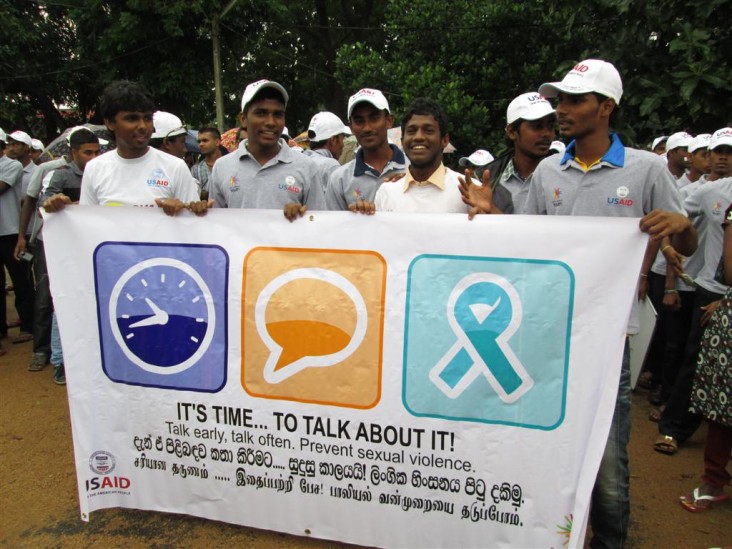
The psychological wounds left over from the sexual violence inflicted during Sri Lanka’s 30-year civil war remain raw even now, four years after peace was proclaimed in 2009. The desensitizing effects of prolonged, systematic sexual violence have left many Sri Lankans inured and resigned to such abuse, leaving women and children susceptible to these crimes long after the formal end of hostilities. The most vulnerable are internally displaced persons, returnees and other conflict-affected individuals in the north and east.
To turn the tide against sexual violence and to promote post-war reconciliation, USAID’s Office of Transition Initiatives implemented the two-year Sexual Assault Forensic Examination (SAFE) program in 2012-2013, comprised of 30 activities. These activities included curriculum development and training for medical and legal professionals; distribution of “SAFE kits”—a set of about 25 items to aid in the collection of forensic evidence following a sexual assault; provision of resource books and specialized equipment; creation of child-friendly examination spaces; initiation of a national database to record sexual assault case information; and awareness raising campaigns.
Though only recently completed in November 2013, the SAFE program is already having an impact. Previously, sexual assault victims were not asked for their consent before being examined, and were often examined against their will. SAFE worked with the Government of Sri Lanka to include a victim consent section on the national medico-legal examination form. Women and children will no longer be re-victimized in the name of medicine or justice.
Additionally, prosecutors and others are now discussing sexual assault case management. Government officers now recognize sexual assault incidents as serious and criminal offenses. Communities now understand the importance of medico-legal care for sexual assault victims, and reports of sexual assaults—now closely monitored by the Ministry of Health in a database developed by SAFE—are on the rise as a result of awareness campaigns and training.
“Most of the people who commit these offenses [do so] because they think they can get away with [it],” said Sri Lanka Attorney General Palitha Fernando at a USAID training event carried out with his office. “They think they can suppress the evidence. If they know they cannot get away with this and the criminal justice system will ruthlessly pursue them, and they will be convicted, and they will have to face the consequences, they will think twice before committing these offenses.”
A SAFE kit costs less than $20 to assemble. The affordability of the kit is a key factor in the likelihood of the program’s sustainability. Already, the Ministry of Health has adopted the SAFE kit model and added funding to their annual budget to support availability. Other indicators of long-term sustainability include: an increase from just one to 22 medico-legal officers to cover the north and east regions, all trained through the SAFE program; an 85 percent training rate of officers in the medico-legal examination; and the active involvement of youth in awareness campaigns and demonstrations about the problem of sexual violence.







Comment
Make a general inquiry or suggest an improvement.